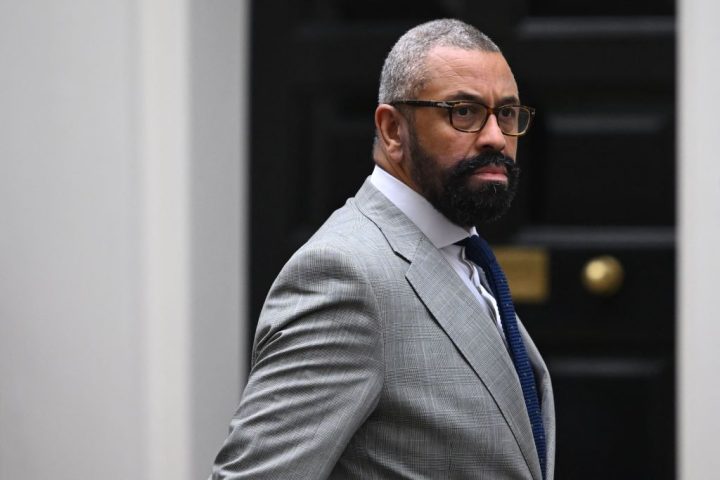The Foreign Office is making a big mistake in failing to designate Iran’s Islamic Revolutionary Guards (IRGC) as a terrorist group. The 100,000 strong organisation, the most powerful wing of Iran’s security apparatus, was established after the 1979 Islamic revolution. For decades it has been at the heart of Iranian support for global terrorism on foreign soil, including the UK and Europe. It also arms and supports militant groups across the Middle East.
By any rational measure the group meets all the criteria for a ban under the 2000 Terrorism Act. Yet the Foreign Office continues to avoid the necessary step of proscribing the revolutionary guards, despite fresh evidence from MI5 of its growing menace.
This policy of keeping the diplomatic door open at all costs has meant turning a blind eye to Iran’s recent human rights abuses
Since the start of 2022, the UK has responded to more than 15 credible threats to kill or kidnap British or UK-based individuals by the Iranian regime. Tehran has publicly called for the killing and capture of the people targeted and in some cases detained or harassed their family members in Iran. There were even warnings last year of an Iranian hit squad targeting British-Iranian journalists in London.
The Foreign Office’s wholly inadequate answer to a heightened risk of attacks inside the UK is to try and sell its new beefed-up sanctions regime. For the first time this will allow ministers to sanction individuals for their activities inside the UK, and not just in Iran.
In total, more than 350 Iranian individuals and organisations are now subject to UK sanctions. James Cleverly, the Foreign Secretary, told MPs there ‘will be no hiding place for those who seek to do us harm’.
The problem is that most of those targeted have no assets in the UK, or any plans to come here. Sanctions are simply inadequate in this particular fight. Just as inadequate are Cleverly’s reassurances that Britain is leading the way at the United Nations in condemning Iran’s behaviour. This is largely a distraction. Proscription of the Iranian guards – the correct and obvious course of action – would have made it a criminal offence in the UK to belong to the group, fund its activities, meet its members or even display its flag or logo in public. That is surely much more effective.
The hesitation in taking this measure also makes very little sense in other ways. The government has already proscribed Hamas and Hezbollah as terror groups, so why refuse to do so in the case of an organisation that is widely credited with being the primary financier and supplier of these terror groups?
This decision also puts Britain at odds with Washington. The Trump administration listed the revolutionary guards as a terrorist organisation in 2019, a decision that President Biden has backed. Here, MPs from across the political spectrum have voiced concerns about the government’s position. In January, MPs voted in favour of a motion in the House of Commons calling on ministers to proscribe the revolutionary guards. And in April, more than 100 MPs wrote to the Prime Minister supporting an IRGC ban.
Why does the Foreign Office continue to hedge its bets? The problem it faces is that the IRGC is so critical to the military power structure in Tehran that proscribing it would effectively label the entire regime as terrorist. Officials are worried about possible Iranian retaliatory action, for example, a move to expel the UK ambassador to Tehran.
Diplomats are also concerned about a potential lack of EU support, which would leave Britain isolated. European nations, including France and Germany, remain more interested in keeping dialogue open with the regime over a deal that would stop Tehran from developing the capacity to produce a nuclear weapon. This policy of keeping the diplomatic door open at all costs has meant effectively turning a blind eye to Iran’s recent human rights abuses, including the brutal crackdown on domestic protests against mandatory hijab-wearing, as well as ignoring the regime’s sale of drones to Russia that have been used to attack civilian targets in Ukraine.
The Foreign Office is running out of time and excuses. The Iranian revolutionary guards should be blacklisted, with all the consequences that flow. It is the most effective way of sending an unequivocal message to Iran that Britain will not tolerate state-sponsored terrorism.







Comments